What Human Foods Can Dogs Eat? 9 Treats You Can Safely Share With Your Pet

Dog lovers know how hard it can be to resist feeding their pets a little bit of what they’re eating. Of course, there are many items that can be toxic to canines that should always be avoided. But in some cases, there are items in your fridge and pantry that can make for a perfectly good snack for your pup. Read on to see what human foods dogs can eat, according to veterinarians.
RELATED: 20 Popular Dogs That Don’t Shed.
1
Pumpkin puree
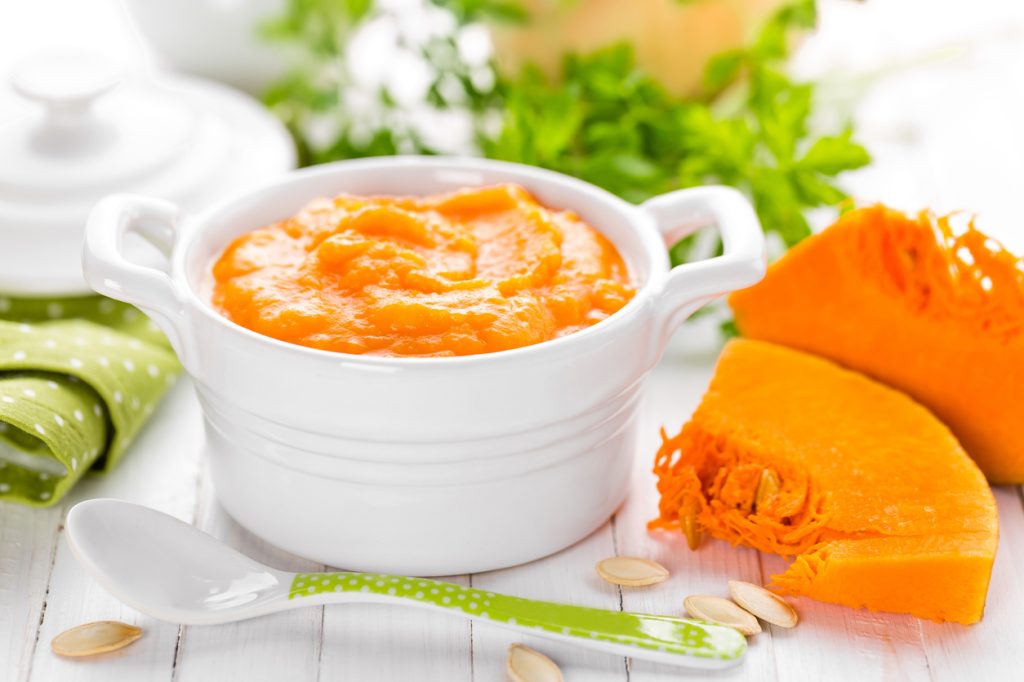
Whipping up a pumpkin puree in the blender for a soup or a batch of homemade baby food? Experts say you could also share a bit of the decadent, earthy treat with your dog.
“I love sharing this with my pet because it is a great source of soluble fiber, and it’s easy to fill Kongs and other treats with this,” says Ambika Vaid, DVM, an integrative veterinarian and veterinarian advisor at Badlands Ranch. “It’s also a great addition to their diet when your pet has an upset stomach.”
It’s also loaded with some essential nutrients. “Pumpkin is a wonderful source of fiber and beta-carotene, which is a precursor to vitamin A,” says Adam Guest, founder of pet food company Raw and Fresh. “Just make sure to use plain, cooked pumpkin and avoid any spiced or sweetened varieties.”
2
Apples
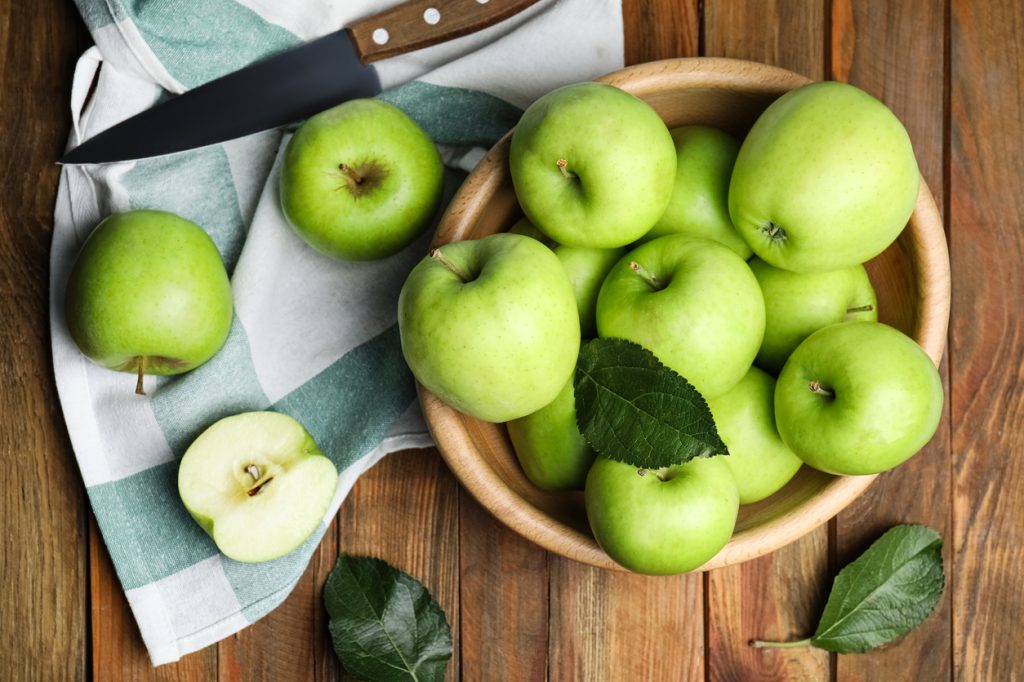
There’s nothing quite like biting into a crisp, juicy apple as a snack or part of a meal. And if you’re looking for a sweet treat to share with your pet, they’re a good option.
“They contain natural fiber and have a crunch your dog will likely love,” says Jamie Clanin, DVM, a veterinary advisor for PetLab Co. Apple seeds are toxic, so you need to remove them, but the skin is safe to leave on.”
RELATED: New Study Identifies the Surprising Foods Making Your Dog Overweight.
3
Carrots
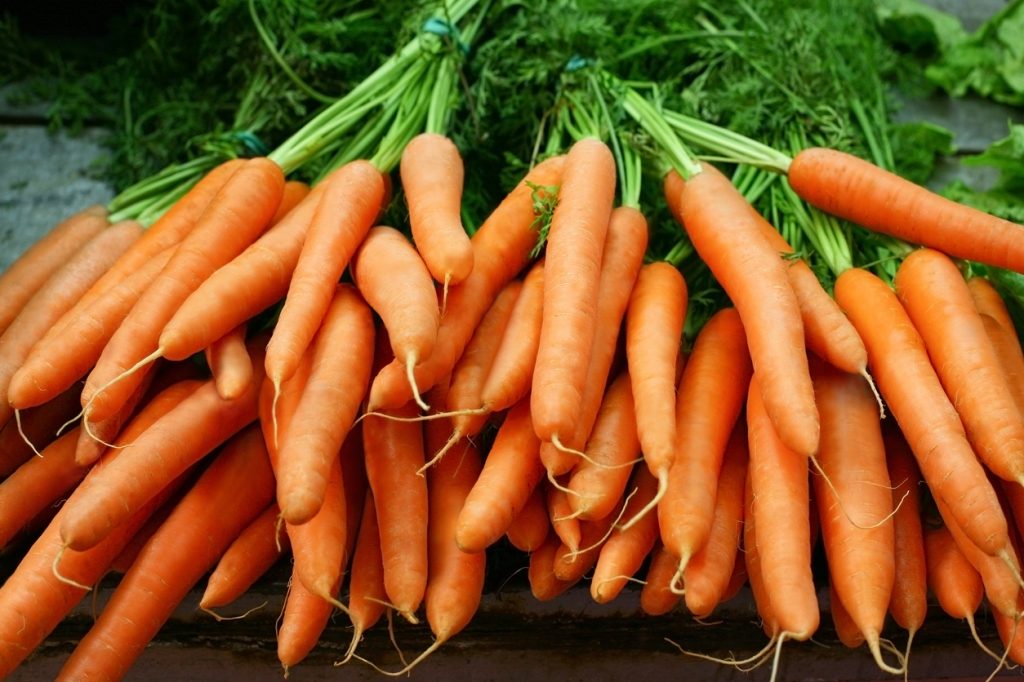
Whether you’re adding them to your morning juice or using them as a pop of color in a salad, carrots are a versatile vegetable that humans love to snap into—and it’s another treat their dogs can get in on, too.
“Carrots are a great snack that I love giving to my pet for chewing and snacking on,” says Vaid. “I also don’t feel guilty sharing this snack with my pet because it is a low-calorie treat.”
They also offer the same nutritional benefits to dogs as they do to humans. “They are rich in beta-carotene, which is great for eye health, and their crunchiness helps maintain dental hygiene,” says Kathryn Dench, DVM, veterinary surgeon and chief scientific advisor to Paw Origins. “I recommend cutting carrots lengthways to reduce the risk of choking and to monitor your dog the first couple of times they eat carrots to make sure they chew properly!”
4
Raspberries
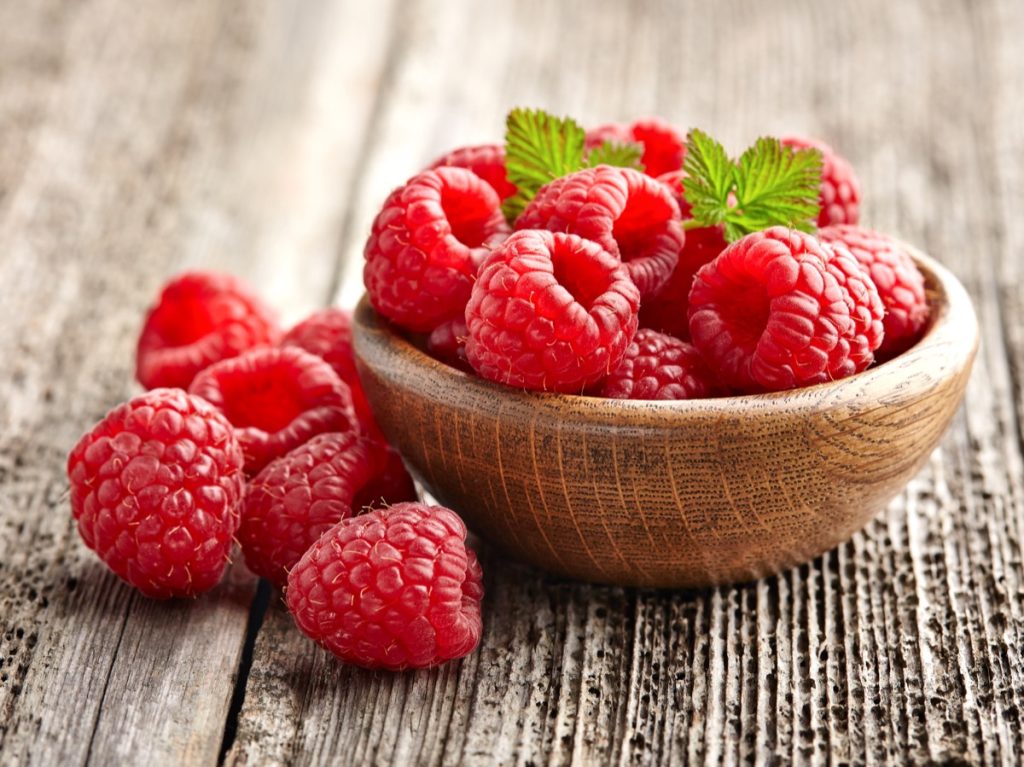
Raspberries are great as a topping for a yogurt bowl or on their own as a sweet snack in the middle of the day. And according to Clanin, they’re also safe for our furry friends.
“Berries are a low-sugar fruit, so they are better for your pup than other sweet treats,” she tells Best Life. “Plus, raspberries have a convenient little pocket in the center that can make giving small pills to your dogs a breeze!”
5
Plain cooked chicken breast
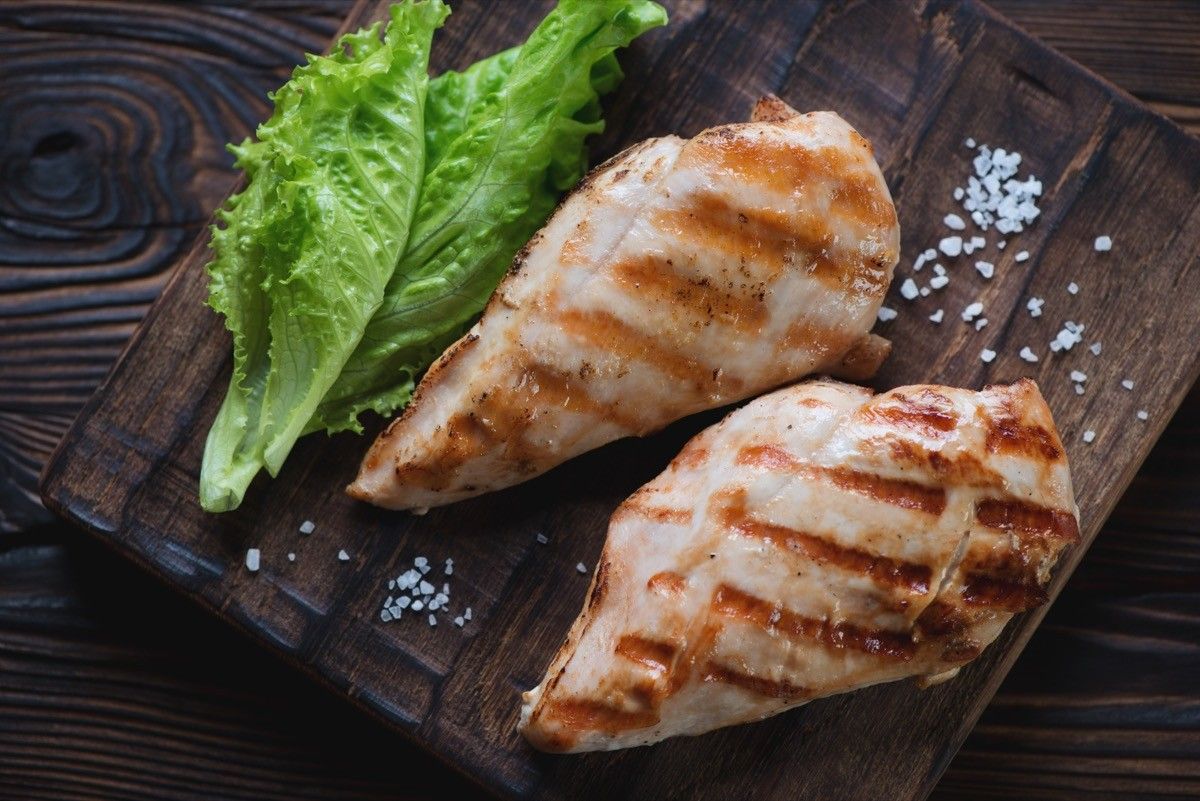
Every pet owner has found themselves in a scenario where they’ve suddenly run out of dry or wet dog food. In this case, there’s one fridge staple that can stand in for kibble: unseasoned cooked chicken.
“It’s an excellent source of protein that can be used as a meal replacement in a pinch,” Lauren Witter, DVM, managing veterinarian at Small Door Veterinary. “Opt for chicken breast, which is lower in fat than other chicken, and remove any bones and skin before serving.”
However, she adds that you should be cautious the first time you feed it to your pup, as some dogs have a chicken sensitivity or allergy.
RELATED: 7 Signs Your Dog Is Suffering From Separation Anxiety—And How to Overcome It.
6
Peanut butter
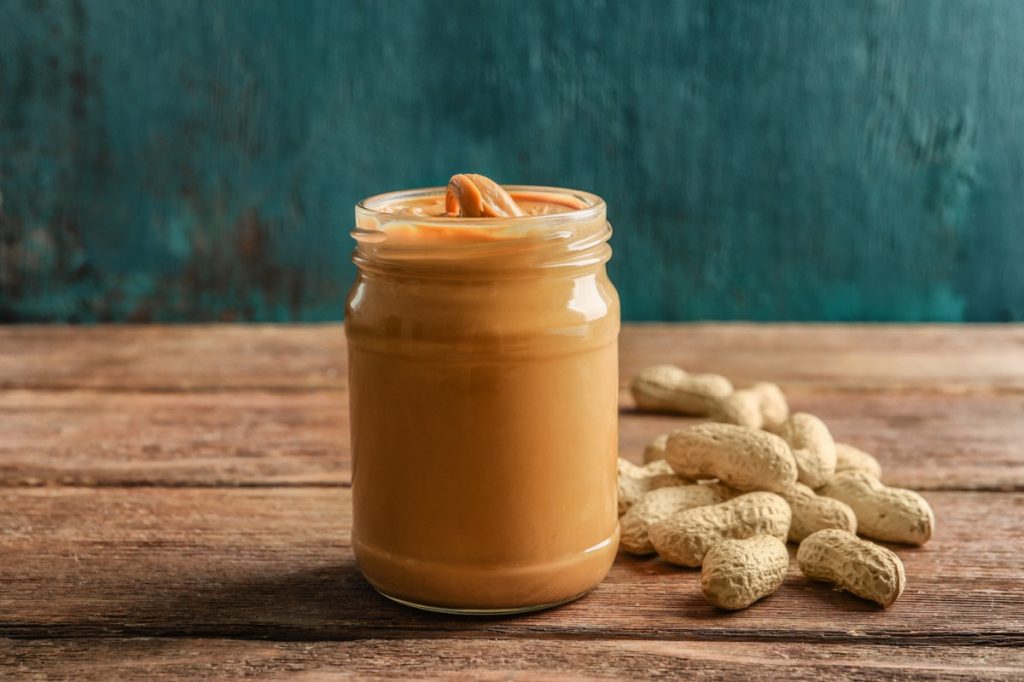
Some humans can’t resist peanut butter, sometimes resorting to eating it by the spoonful. And as many pet owners know, it’s also suitable for canines—so long as you don’t overdo it.
“Peanut butter can be a good source of protein and healthy fats in a dog’s diet, but because it is high in fat, moderation is key,” Hannah Hart, DVM, veterinarian at pet supply company Chewy. “In general, calories from treats and snacks should only make up 10 percent of a dog’s diet.”
And don’t assume your favorite brand will be the best option. She explains that whatever you give your dog should also ideally be salt-free since salt can be an issue for animals with high blood pressure, heart issues, or kidney disease.
“It’s also important that the peanut butter be free of sugar substitutes like xylitol, which can be life-threatening for dogs to consume because of the risk of low blood sugar and liver issues,” she warns.
7
Popcorn
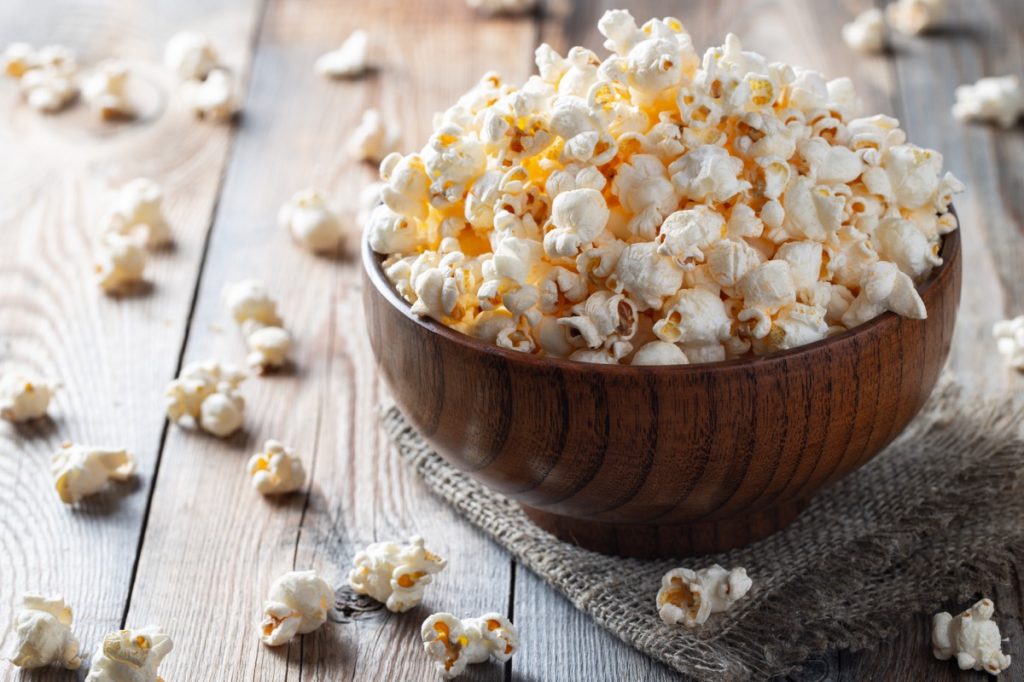
Having a binge-watching session on the couch with your dog? You could split a bowl of a traditional movie theater snack as you blow through episodes.
“Unsalted, unbuttered popcorn is a great treat with a little crunch. Just pop some in an air popper, and you’re good to go!” says Clanin.
The best part? Popcorn is low in calories, so it won’t derail your pup’s diet.
“And it can easily be kept in a jar on the counter, so it’s always ready at a moment’s notice,” she adds.
8
Blueberries
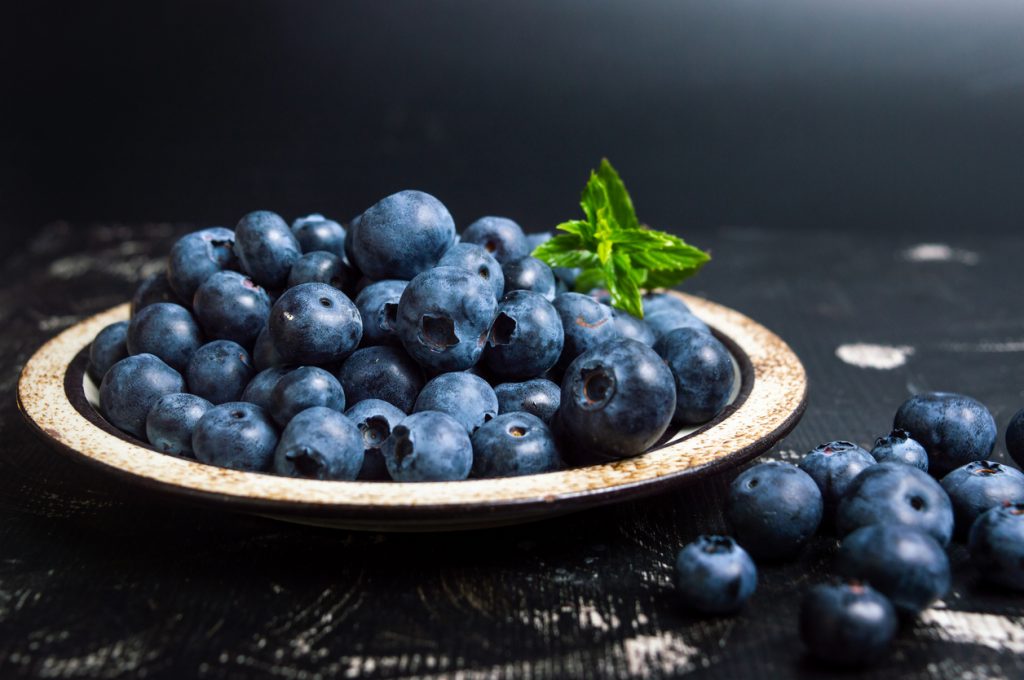
Similar to raspberries, blueberries can be a great snack or ingredient to incorporate into your favorite breakfast dishes. Dench says the juicy morsels are also an appropriate treat for dogs and have multiple potential health benefits.
“Blueberries are packed with antioxidants, which help fight free radicals and support overall health,” she says. “They are also low in calories and high in fiber, making them an excellent choice for a healthy treat.”
There’s also reason to believe that canines are hardwired to enjoy them. “Researchers have found that wild wolves often eat blueberries when they are in season, suggesting they may have formed a part of our pet dogs’ ancestral diets,” she says.
9
Green beans
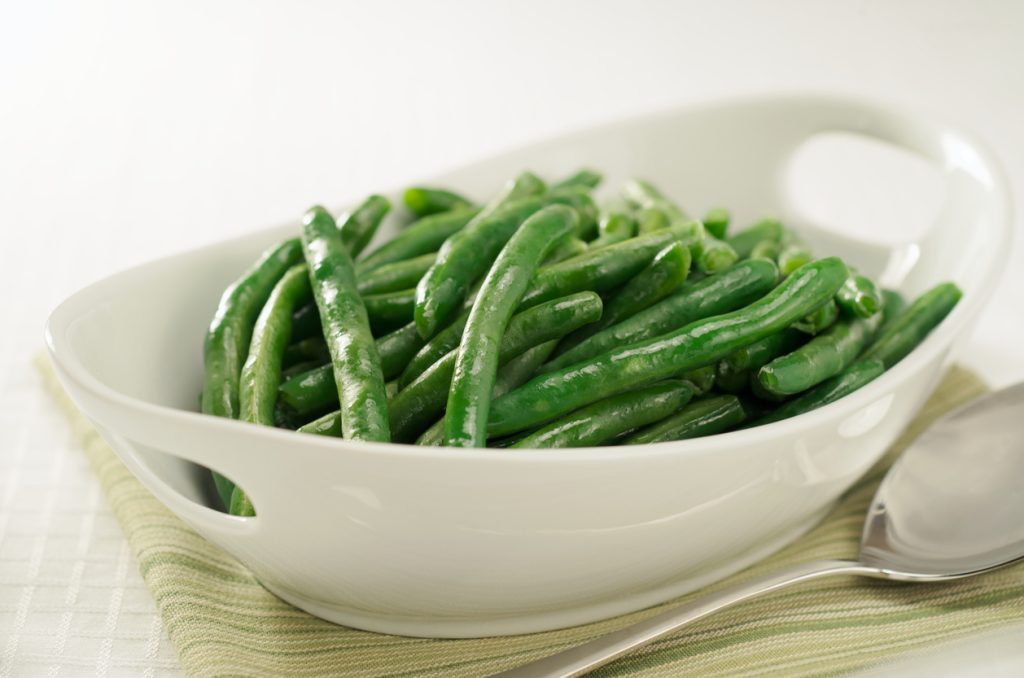
Green beans are often served as a healthy side dish for humans, but they can also become a helpful part of your pet’s diet.
“Because green beans are low in calories and high in fiber, they can help your dog feel full and make a great food topper for dogs who need to lose weight,” says Hart. “They contain nutrients such as vitamin A, vitamin B6, vitamin C, vitamin K, iron, calcium, and even a good amount of protein.”
However, you should be careful not to copy your favorite dinner recipe for your dog. “I recommend offering them cooked, and be sure not to use any garlic or other seasonings during preparation,” Dench says.